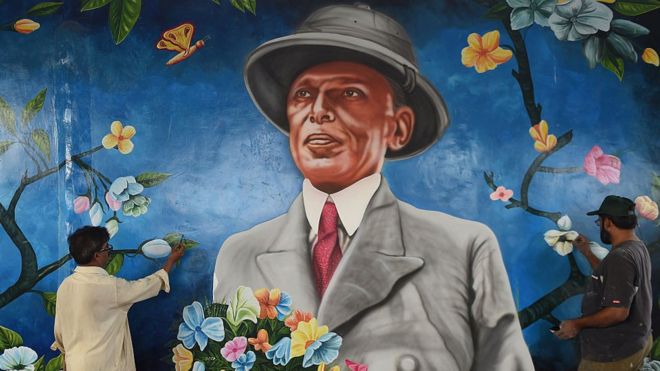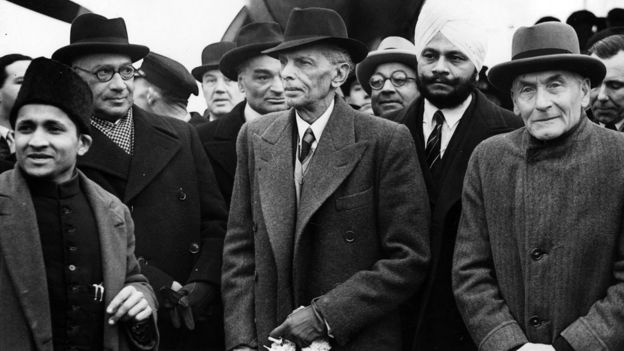There are two reasons for Pakistan to celebrate 25th December. Pakistan celebrates the birthday of Mohammed Ali Jinnah, the founder of the country, while celebrating the birthday of Christians in Pakistan.
Mohammad Ali Jinnah, also known as Kuwaiti Assam, is believed to have created the country 70 years ago. Like Pakistan, the holiday on December 25 in Pakistan; But it is not for the crustacean, for Jinnah's birthdays.
Most people who have a right-wing intention in the public and power circle are not happy to celebrate the festivities they consider as "Western or non-Islamic" ceremonies, meaning it is meaningful to celebrate Jinnah's public holidays.
Religion is the key element of today's Pakistan identity. But is it that Jinnah reflects the idea of creating the country? Jinnah wanted to be a country governed by the principles of religion? Whatever the popular belief, would it be a common country for everyone? Or did he want Pakistan to be a secular country?
"Jinnah has emphasized the significance, democracy, and equal rights for minorities in his 33 talks, and he said that Islam's theories are balanced even when he mentions Islam," says historian and commentator Yasir Lathif Hamdani.
But what is happening now is not the same as Jinnah's thought.
Yasir Hamdani, who pointed to the struggle against Faizabad in Faizabad in the capital Islamabad, said that Jinnah was totally negative to the desired Pakistan.
In these years, many historians in Pakistan have intentionally portrayed Jinnah as a monk and a very religious man, historian Mubarak Ali said.
"Here, historians are trying to create false images of Jinnah, the secularism and the Indian nationalism, and that it is not against Britain."
"And it is deliberately done to adapt to the customs of the country's current extreme right-wing trustees." Mubarak says
"Mubarak Ali says that this" new Jinnah "is different from the original Jinnah and that Jinnah has lost his historical significance.
But who is the real Jinnah?
Mubarak Ali believes Jinnah is a secular. In politics, he admits that Jinnah used religion as a weapon, but that he did not act as much as it did before politics.
"He made clear that Pakistan would not be a religious nation." Mubarak says.
Yasir Lathif acknowledges that "Jinnah's policies are shattered and many of the absurd ideas associated with him are in fact the opposite of his ideas."
'Jinnah's Pakistan' was first buried in Pakistan in 1974 when Ahmadinejad was not Muslim. Subsequently, it was buried again by dictator General Sia ul Haq.
Now, with the fascist protesters, the government's treaty is entirely negative from Jinnah's view.
Mubarak, who claims Jinnah is the most powerful person, also states that the country's politicians are deliberately excluded.
"He is a defender of his promise, a very honest, devoted person and a good lawyer, but it is not appropriate for the politicians to speak his pride, so he is more concerned about religion and his religious ideas." "Jinnah, Pakistan is a secular Nation, all religions But that Pakistan's constitutional law can not become a president or prime minister of the country, "Yassir Latif said.
"This would not have happened in Jinnah's Pakistan." Mubarak Ali, Jinnah's thoughts on Pakistan, seem to have a lot of confusion about it, "Mubarak Ali said.
"Jinnah clearly stated that Pakistan would not be a religious country, but Jinnah does not say whether it will be a secular country or a democratic country, there is a clarity."
But Jinnah's ideas were so clear that Jinnah was appointed as a minister of Pakistan's first law minister, Yasir Latifin.
Two days before the division, there were six Hindus in the group of fundamental rights set up by Jinnah. The country's basic theory, Yasir Hamadani, reveals that Jinnah was clear in "equality".
Mubarak Ali says Pakistan should build a path for itself, rather than in the past.
"Pakistan is not the property of Jinnah, the people of the country, and we want to try to change Pakistan as a compromise with contemporary realities, but Jinnah would not like it." Mubarak says.
Yasin, however, refuses to accept this, saying, "Jinnah is the founder of Pakistan and he is always in touch with Pakistan."


Comments
Post a Comment